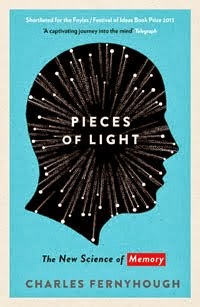 Image by Christine ™ via Flickr
Image by Christine ™ via Flickr
Monday, May 25, 2009
Children and digital technologies
Tuesday, May 19, 2009
What about the other one?
 Image via Wikipedia
Image via Wikipedia
Readers of this blog will know that I have been writing about Isaac quite a bit, although admittedly there's not much about him in The Baby in the Mirror. I'll also admit to a certain bias in focus towards the first-born: although I've kept detailed notes on both children (Lord, how they differ), Athena undoubtedly got the lion's share of the attention. I'm not alone in this, however. I've just been reading David Buckingham, Rebekah Willett and Maria Pini's fascinating forthcoming book Home Truths: Video production and domestic life, which describes a detailed study of the use of the camcorder in the home. Their work, inspired in turn by Richard Chalfen's classic studies of home movies, describes several instances of preferential treatment for first-borns, at least as far as the video camera is concerned. One participant, Aiden, described what happened in the case of his eldest son, Zac: 'My father-in-law filmed Zac a lot but then lost interest. Yeah, the first one got filmed a lot.'
The best answer to this is to follow the example of Brian Hall, whose wonderful Madeleine's World showed me what was possible in this kind of writing. Hall's dedication page reads as follows:
FOR CORA,with apologies for this book being about MadeleineAND FOR MADELEINE,with apologies for the same reason
Saturday, May 16, 2009
After the tour
 Image via Wikipedia
Image via Wikipedia
I recently spoke to Dr Alvin Jones for his radio show in Durham, NC. You can listen to our conversation by going to his website and scrolling down until you see the US jacket cover. Click on the image and you should hear the recording.
Friday, May 8, 2009
Toddlers welcome!
If you're planning to come along to any of the events next week, please do feel free to bring the little ones along - I always think these events go better when there are some small people there to set me straight!
Thursday, May 7, 2009
Someone must know
 Image by Brian Negus via Flickr
Image by Brian Negus via Flickr
'Well,' I say, 'if he was a real person then he probably lived about fifteen hundred years ago...'
'But was he a real person?'
'I don't know.'
'But you must know.'
'I don't. I don't know if there was such a person as King Arthur or not. Some people think there was, and some people think he was just a story.'
'But someone must know.'
'No. No one knows for sure.'
'Does God know?'
I dodge this. I could imagine us having the same conversation about Him Upstairs. What intrigues me is Isaac's conviction that, even if a particular individual doesn't have access to all the facts, someone out there must do. There is a fact of any matter, and at least one individual who holds the key. It's hard to imagine, but we might one day find incontrovertible proof of King Arthur's existence (or otherwise). Then Isaac's demand for definite knowledge will be met. Until then, there is Uncertainty: a great shifting intangible mass of it. It might frustrate his five-year-old mind, but it's the kind of thrilling sense of being out of step with the facts that might, one day, make a scientist.
Labels:
fantasy,
imagination,
knowledge,
testimony
Subscribe to:
Posts (Atom)
![Reblog this post [with Zemanta]](http://img.zemanta.com/reblog_e.png?x-id=5ffcb299-b470-4d59-acc7-1759e2f64679)
![Reblog this post [with Zemanta]](http://img.zemanta.com/reblog_e.png?x-id=4b9fb6fa-379b-48d8-8693-3510b7c51a38)
![Reblog this post [with Zemanta]](http://img.zemanta.com/reblog_e.png?x-id=2c85e3ec-6853-4f0b-a2dc-fb447bdf266d)
![Reblog this post [with Zemanta]](http://img.zemanta.com/reblog_e.png?x-id=733ae3dc-f789-4150-ad24-6ee033ff7fb3)




